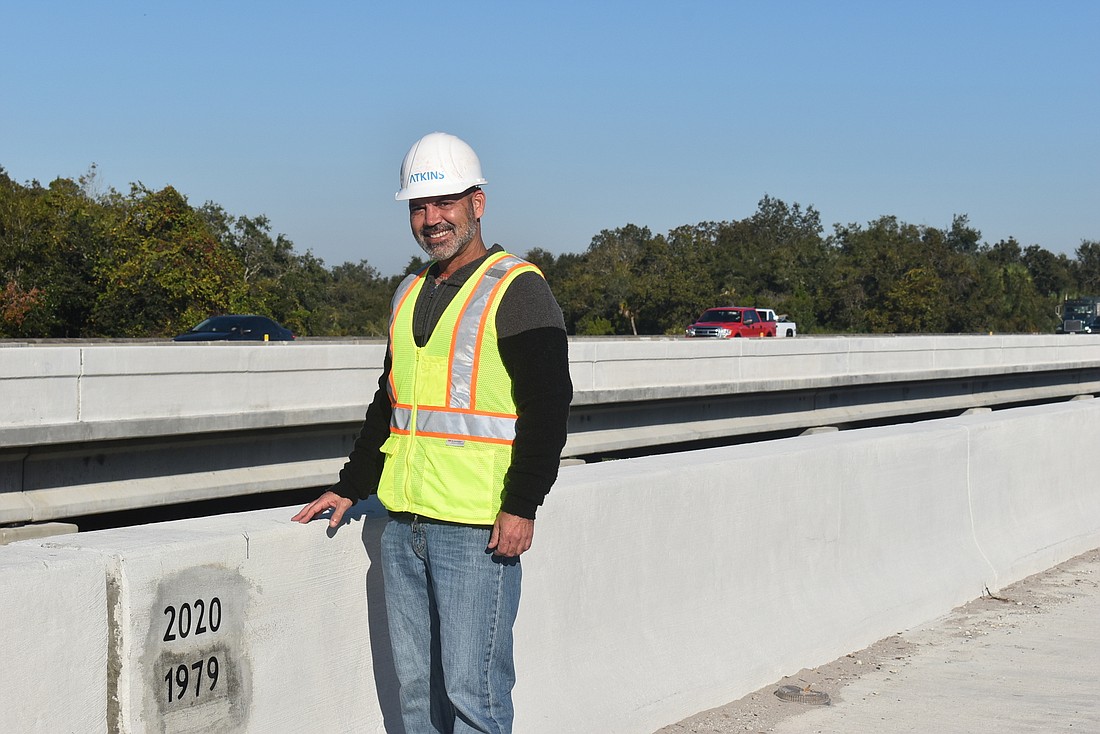- November 28, 2024
-
-
Loading

Loading

More than two years after the Florida Department of Transportation began construction at the interchange of Interstate-75 and State Road 70, the project is nearing its off-ramp.
Construction crews are beginning to turn their attention to State Road 70, the final major component of the project to begin construction.
Crews continue to work on several components of the project simultaneously. Other aspects of the project, such as widening of I-75, are still being completed. But major work on S.R. 70 represents a milestone nonetheless, according to FDOT community outreach manager Brian Bollas.
When completed, FDOT’s $80.8 million project will have widened to eight lanes a 6.75-mile stretch of I-75 from north of University Parkway to south of S.R. 64, reconstructed the S.R. 70/I-75 interchange by eliminating three of the four loop on-ramp configurations, widened I-75 entrance and exit ramps, replaced the bridge over S.R. 70, widened the bridge over the Braden River and resurfaced S.R. 70 between Tara Boulevard and 87th Street East. The project will also add sidewalks and 6½-foot buffered bike lanes along S.R. 70.
The project was originally scheduled for completion by Spain-based construction company Sacyr in spring 2021 but is now on target for summer 2021, weather permitting. The delay was caused by rain.
“We live in Florida,” Bollas said. “It’s kind of flat. So sometimes that water is ponding. And then sometimes there's certain tasks that the ground can't be saturated, soaking wet and muddy for the work that they need to do. Sometimes it's almost like you're waiting for things to dry out, too. We've had just a lot of rain.
“Say when they go to resurface, even if it doesn't rain all night and it only rains for a few hours, they can't necessarily do paving and painting because it's still wet overnight. And we don't allow them to close lanes on State Road 70 during the daytime. A lot of the work they have to wait for at night. So you're waiting for the weather to cooperate at nighttime, too.”
The work to improve State Road 70, the last major component of the project, began in November. FDOT saved S.R. 70 for last because it didn’t make sense to risk damage to a newly improved road by doing tasks such as demolishing the I-75 bridges or moving all the unearthed dirt from the new stormwater ponds on or around it.
“The contractors are taking a bunch of safety precautions, and that's why we're diverting traffic, but what if something did fall onto the new roadway below?” Bollas said.
Now that stormwater ponds along S.R. 70 are complete, resurfacing can begin. Parts of the road were already due to be resurfaced, and the interchange project will exacerbate the need further. Crews will also improve the road’s medians, including new curbs, and add new signs.
Meanwhile, travelers can expect few traffic disruptions during the day. Construction crews will be allowed to close one lane at night while they do a large portion of resurfacing, curb work and other tasks.
Another improvement to S.R. 70 will be 5-foot sidewalks and bike lanes. According to Bollas, these are necessary because of new development in the area, from houses to hotels.
“That's just a way to provide an additional form of mobility to folks, whether they choose to walk to Publix or take a bike to Starbucks,” Bollas said.
Both new I-75 bridges over S.R. 70 are now in use. The old northbound bridge was demolished in November, while the southbound bridge was demolished a couple of months prior.
The new bridges are wide enough to accommodate up to 10 lanes, which will likely be necessary one day because of the speed of local population growth. The seventh and eighth lanes are finished in sections of the highway but will not be operational until the entire project is complete. An FDOT study is in progress to determine how to best use the ninth and 10th lanes once they are set for construction several years from now, according to Bollas
“It could be a toll lane, it could be a high-occupancy vehicle lane,” Bollas said. “You're probably looking at about 10 years, because it's a couple of years to do the study, the design. And then finally, moving to construction. And each one of those phases takes a few years.”
Major changes will also come to I-75 in the form of new interchanges with S.R. 70 at every corner except the northwest, which will remain a loop. The new interchange will be a modified diamond, meaning the three non-loop ramps will diverge only slightly from the interstate. Loop ramps are inefficient for an interchange with major traffic, including plenty of trucks. The one remaining loop will double in size to make it more gradual, meaning it will be easier for trucks to use.
Another improvement that will be added upon completion of the project is a traffic signal to direct vehicles turning right from northbound I-75 to eastbound S.R. 70 to make the interchange safer. At the moment, the exit off northbound I-75 only has a signal to make the turn onto westbound S.R. 70.